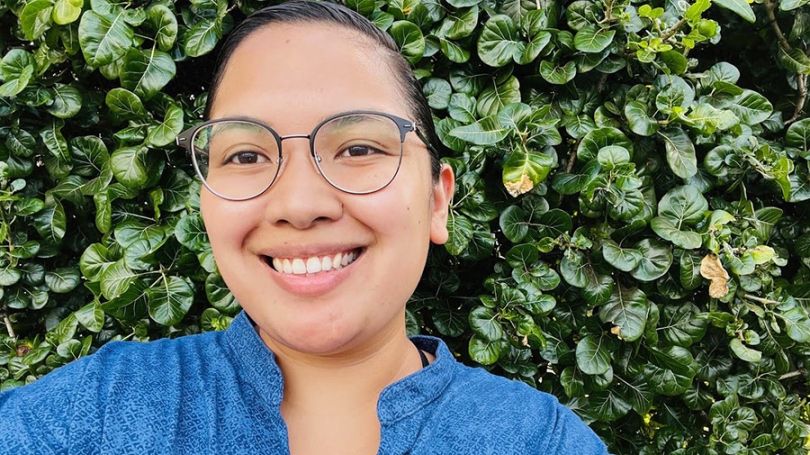
- Undergraduate
- Research
- News & Events
- People
Back to Top Nav
Back to Top Nav
The Women's, Gender, and Sexuality Studies Program extends a warm and enthusiastic welcome to a fantastic fellow joining us in the coming year:
Katherine Achacoso is a doctoral candidate in the Department of American Studies at the University of Hawaiʻi at Mānoa. She was recently awarded the Guarini Pre-to-Post Doctoral Fellowship in Asian American Studies with a joint appointment in WGSS (2022-2024). Weaving together the fields of Critical Indigenous Studies, Native Pacific Studies, Diaspora Studies, and Archipelagic Studies her scholarship and teaching considers how transoceanic methodologies might expand continental approaches to interrogating diasporic Filipinx experiences. This forthcoming year, in collaboration with emerging Filipinx scholars, activists, and artists from Oceania, the Caribbean, and the Great Lakes, Katherine will be co-editing a two-part special issue for ALON: Journal for Filipinx American and Diaspora Studies on "Oceanic Filipinx Studies," highlighting how transoceanic movement and relationality inform diasporic Filipinx experience, identity, activism, and de/coloniality. Her dissertation, "Undermining Canadian Empire: Towards Dangerously Remembering Stories of Lands, Rocks, and People that Move," builds from this archipelagic vision to consider the radical possibilities of dangerously (re)membering diasporic Surigaonon critiques of Canadian resource extractive imaginaries that span so-called Canada and the Philippine archipelago. In conversation with Indigenous feminists who emphasize the gendered colonial logics underpinning Canada's mining empire, she considers show diasporic Surigaonon Canadian women (re)map our geographic understanding of the archipelagic nature of Canadian mining through embodied cartographies which (re)member the physical, spatial, and imaginative reach of Canada's mining infrastructure. Her work, in this regard, uses diaspora as an analytic to multi-scalarly map various forms of settler statecraft and settler infrastructure (re)imagined within the Philippine archipelago. It also examines the migration and stories of diasporic Surigaonon highlighting the spatial politics of peoples and lands that move vis-a-vis environmental calamity and global resource extractive chains abroad.